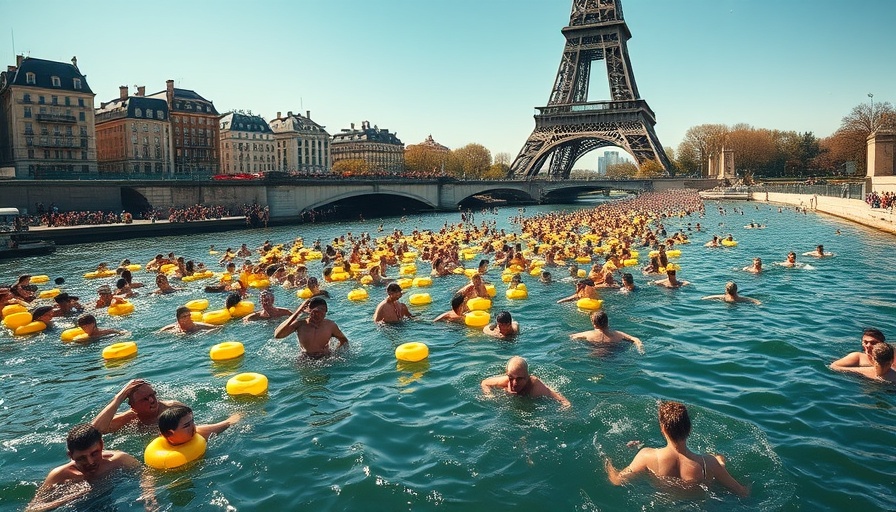
Revolutionizing Urban Recreation: Swimming in the Seine
In a historic move that celebrates both environmental progress and urban recreation, the River Seine in Paris has reopened for public swimming for the first time in over a century. Officially launched on July 5, 2025, this initiative reflects a growing global emphasis on sustainability and enhancing community wellness through nature. The reopening involves three designated swimming sites along the iconic river, marking a significant turning point in how urban waterways are perceived and utilized.
Environmental Commitment: A Journey Toward Cleanup
This monumental shift comes after the city of Paris invested a staggering 1.4 billion euros ($1.64 billion) into cleaning the River Seine. This effort was primarily to prepare for the upcoming 2024 Summer Olympics. Improvements included enhanced wastewater infrastructure and increased rainwater storage capabilities aimed at minimizing sewage overflow into the river. Despite notable advancements, it is vital to recognize that ongoing pollution concerns exist, illustrating the complexities of urban ecological restoration.
The Promises and Perils of Swimming in an Urban River
The new swimming areas are equipped with lifeguard supervision, changing facilities, and even space for sunbathing, directly addressing the needs of local residents and tourists. However, Parisian residents remain cautious even as the city encourages swimming to rejuvenate public interest in its waterfronts. "I’ve seen things you can’t imagine floating in the Seine," states local resident François Fournier, highlighting the lingering concerns about water quality.
Understanding the Health Implications
While the city guarantees daily health checks for the swimming zones, unpredictability still looms after rainy weather events, as rainfall can overwhelm the sewage system, potentially releasing harmful bacteria into the river. This concern was validated shortly after the reopening when a temporary shutdown occurred due to adverse weather conditions. Swimming in natural water brings its own set of health risks, but it also promotes a unique tourism experience in one of the world's most beloved cities.
Embracing Sustainable Tourism and Eco-Conscious Experiences
The reopening of the Seine’s swimming sites provides a unique chance for boutique hospitality professionals to capitalize on sustainable tourism trends. As eco-conscious travelers seek immersive experiences in nature, the swimming venues add a fresh appeal for hotels and guesthouses aiming to attract clientele. By offering guests access to the Seine, property owners can develop unique packages centered around the newly accessible swimming experiences, fostering a deeper connection between visitors and the environment.
Setting a Precedent for Urban Waterways Globally
Paris's endeavor to reopen its river for swimming serves as a hopeful benchmark for other cities grappling with similar issues of urban waterway pollution. As cities worldwide seek to promote environmental stewardship, the Seine offers a case study on the balance between urban development and natural preservation. From eco-lodges that educate guests on sustainable practices to local businesses that provide boat tours and nature walks, the ripple effect of this decision can have monumental impacts.
Risk Management: Navigating the Urban Naturescape
For boutique hospitality businesses, it's essential to establish clear guidelines to address potential health risks associated with swimming in natural waterways. Ensuring guests understand the river's conditions and surrounding health protocols can help cultivate a positive experience while reaffirming commitment to safety and sustainability. Providing educational resources and promoting responsible tourism can foster a community that values and protects aquatic ecosystems.
Future Insights: Swimming as a Catalyst for Change
As the public enthusiasm unfolds in the coming weeks, the sentiment surrounding swimming in the Seine may cultivate a broader shift towards embracing urban rivers as valuable recreational assets. If successful, this initiative could influence similar projects globally, encouraging other cities to reclaim and rejuvenate their waterways. In an era where climate awareness is paramount, this initiative aligns with a larger trend of integrating sustainability into urban planning and public life.
 Add Row
Add Row  Add
Add 




Write A Comment